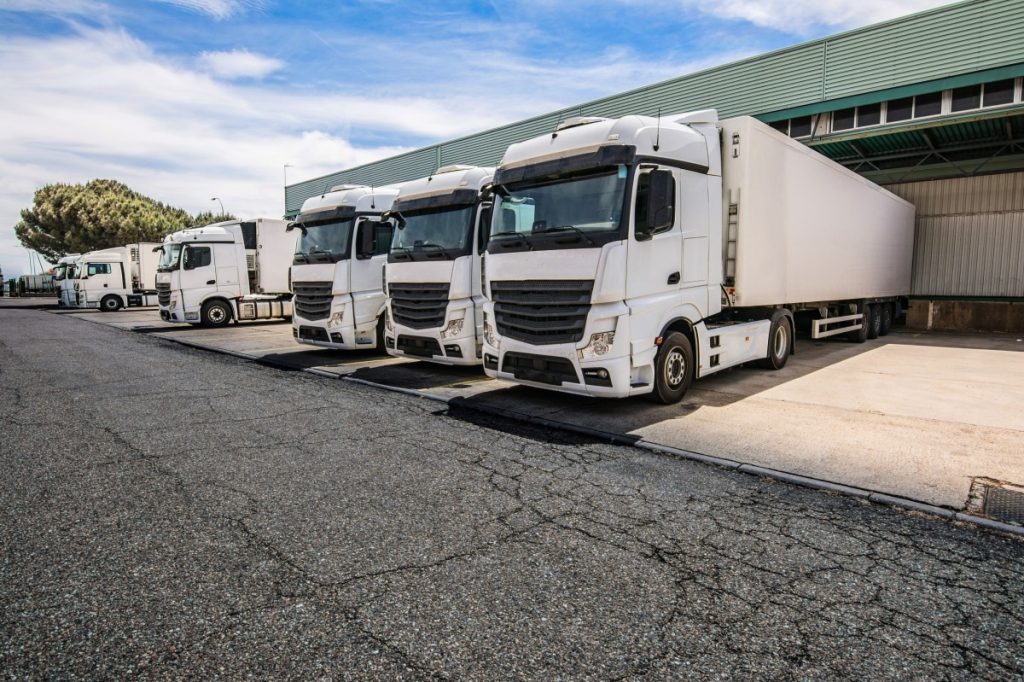Why Upgrading Fleet Vehicles is a Prudent Investment
3 min read
Introduction
Fleet management is a critical component of any business that relies on transportation for its operations. Whether it’s a logistics company, delivery service, or even a business with a sales team on the road, maintaining an efficient fleet is essential for ensuring smooth operations and customer satisfaction. One key aspect of effective fleet management is the timely upgrading of vehicles. In this comprehensive analysis, we will delve into the myriad reasons why upgrading fleet vehicles is a wise and prudent investment for businesses.

1. Enhancing Operational Efficiency
Upgrading fleet vehicles can significantly enhance operational efficiency. Newer vehicles often come equipped with advanced technology and improved fuel efficiency, enabling businesses to optimize routes, reduce fuel costs, and enhance overall productivity. Advanced GPS systems, real-time tracking, and predictive maintenance technologies can streamline operations, leading to quicker deliveries and satisfied customers.
2. Ensuring Safety and Compliance
Safety is paramount when it comes to fleet management. Newer vehicles are equipped with advanced safety features such as collision avoidance systems, lane departure warnings, and adaptive cruise control. These features not only protect the drivers and cargo but also reduce the risk of accidents, which can lead to costly repairs, medical expenses, and legal liabilities. Additionally, newer vehicles are more likely to meet the latest safety and environmental standards, ensuring compliance with regulations and avoiding fines.
3. Reducing Maintenance Costs
As vehicles age, they require more frequent and costly repairs. Older vehicles are more prone to breakdowns and unplanned maintenance, leading to downtime and increased operational expenses. By upgrading to newer vehicles, businesses can significantly reduce maintenance costs and minimize the risk of unexpected breakdowns, resulting in increased reliability and lower overall expenses.
4. Improving Environmental Impact
With growing concerns about climate change and environmental sustainability, businesses are under increasing pressure to reduce their carbon footprint. Upgrading fleet vehicles to more fuel-efficient, eco-friendly models can significantly reduce emissions and contribute to environmental conservation efforts. This not only helps in fulfilling corporate social responsibility but can also lead to potential cost savings through tax incentives and reduced fuel consumption.
5. Enhancing Employee Satisfaction
Providing employees with newer, well-maintained vehicles can boost their morale and job satisfaction. Comfortable and reliable vehicles create a positive work environment, leading to higher productivity and reduced turnover rates. Moreover, modern vehicles often come with ergonomic designs, advanced infotainment systems, and enhanced safety features, ensuring a comfortable and enjoyable driving experience for employees.
6. Leveraging Advanced Technology
The automotive industry is evolving rapidly, with continuous advancements in vehicle technology. Upgrading fleet vehicles allows businesses to leverage the latest innovations, such as electric and autonomous vehicles. Electric vehicles (EVs) not only reduce greenhouse gas emissions but also offer potential cost savings on fuel. Autonomous vehicles, although still in the experimental phase, hold the promise of revolutionizing the transportation industry, offering opportunities for increased efficiency and reduced labor costs in the future.
7. Maintaining a Competitive Edge
In today’s fast-paced business world, staying ahead of the competition is crucial. Upgrading fleet vehicles can give businesses a competitive edge by enabling faster deliveries, improving customer service, and adapting to changing market demands. Businesses with a modern and efficient fleet are better positioned to meet customer expectations and outperform competitors in the market.
8. Long-term Cost Savings
While the initial investment in upgrading fleet vehicles might seem significant, it is essential to consider the long-term cost savings. Newer vehicles typically come with warranties and require fewer repairs, leading to lower maintenance costs over their operational lifespan. Moreover, the improved fuel efficiency of newer vehicles translates into substantial savings on fuel expenses, making the initial investment worthwhile in the long run.
Conclusion
In conclusion, upgrading fleet vehicles is undeniably a prudent investment for businesses. By enhancing operational efficiency, ensuring safety and compliance, reducing maintenance costs, improving environmental impact, enhancing employee satisfaction, leveraging advanced technology, maintaining a competitive edge, and realizing long-term cost savings, businesses can reap a multitude of benefits. Embracing the future of transportation through vehicle upgrades not only positions businesses for success but also contributes to a more sustainable and efficient global economy. Therefore, for any business reliant on transportation, upgrading fleet vehicles is not just an option; it is a strategic imperative that can drive growth, enhance reputation, and ensure long-term success.







